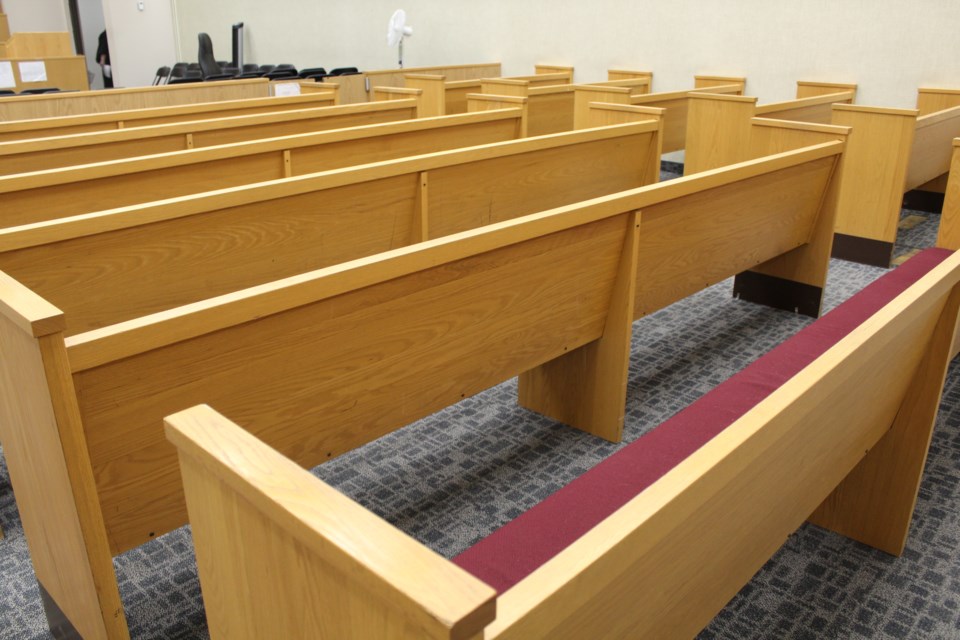The wheels of justice are known to move ever so slowly, so when the worldwide pandemic brought a halt to everyday life as we know it, Ontario's justice system was also forced to shift gears.
An entire workforce had to suddenly change how justice was being administered, adopting new ways of doing things and acquiring and installing the means to get it all done quickly.
That meant rapidly updating procedures and creating policies to physically shut down courthouses and allow wider use of virtual hearings. And that required ramping up the technology and bridging the technological gaps.
"We've modernized the legal system by about 25 years in 25 days. It's really quite phenomenal the work that's been done," said Barrie-Springwater-Oro-
"I deal with the three chief justices on a regular basis to talk about what we can do for capacity and what next steps are," Downey said. "I'm really, really pleased with my team."
Any criminal trials originally scheduled to take place in the Superior Court of Justice between March 16 and June 1 have been adjourned to specified dates in the week of June 1, when new dates are expected to be set.
The latest directive is that there will be no civil or criminal jury trials before September.
And although the courthouse doors are closed to most people, bail hearings as well as bail review hearings where “COVID arguments” are presented to get accused out of jail early are being held in a virtual court.
Through teleconferences, judges are also hearing guilty pleas for those in custody which the province describes as “urgent circumstances” that will likely lead to their release from jail before June 1. In a notice to the profession, the province also indicated that those who are accused can access hearings for other urgent matters, including extensions of driving prohibition orders and bail pending appeal orders.
Urgent family law hearings are also being held.
The provincewide ability to operate remotely is supported by a $1.3-million boost. That includes expanding the use of video technology, supplying the courts with digital recording devices, laptops and teleconference lines for audio court hearings.
Downey said he has been pushing for more modern solutions. He points to his introduction in December of what has been described as omnibus bill, the Smarter and Stronger Justice Act, which contains modernization through remote commissioning and notarizing.
And he launched a pilot program in Barrie to address criticism that the provincial court system still relies heavily on a paper-based process and communication through fax machines.
The e-filing test system related to document discovery was launched as a test last fall under Barrie Police Chief Kimberley Greenwood. The goal of criminal e-intake is to automate that manual process being used by police to start a criminal case.
"There's a number of modernization issues that we had put in motion, but there was just a ton more to do and this (COVID-19) has definitely made it go faster," said Downey.
With the hardware now permanently in place, the attorney general says the next step is to advance the system further.
"I've already turned my mind to that. I'm already talking to the chief justice. We all have some ideas," he said. "We know, as we move out of this, we're going to have a backlog and we need to be in front of it."
Even wifi was considered problematic, with inconsistent coverage leaving some courtrooms without online access at all.
Suddenly, judges and lawyers are working from home remotely and issues are being resolved by conference calls.
Downey says the system — as well as the people who work within it — are adapting to get the job done.
As quickly as the situation related to the health pandemic is changing almost daily what we can do and how we can do it in our everyday lives, the justice system is also adapting, and updates on procedures can quickly fill inboxes.
"Things have evolved from week-to-week just as we got technology in place... (with) tremendous strides made in trying to find ways to minimize impact," according to Downey.
And that, he said, continues, not just to deal with the current crisis, but also to take justice out of the past and introduce it to more modernized processes.
"I have a long list of things I would like to see the system challenged with and we can move things forward. There really are so many areas that we can improve and change how the system works," Downey said. "I have a chart that I work through and we just keep motoring and we're going to stay ahead of the challenges."



